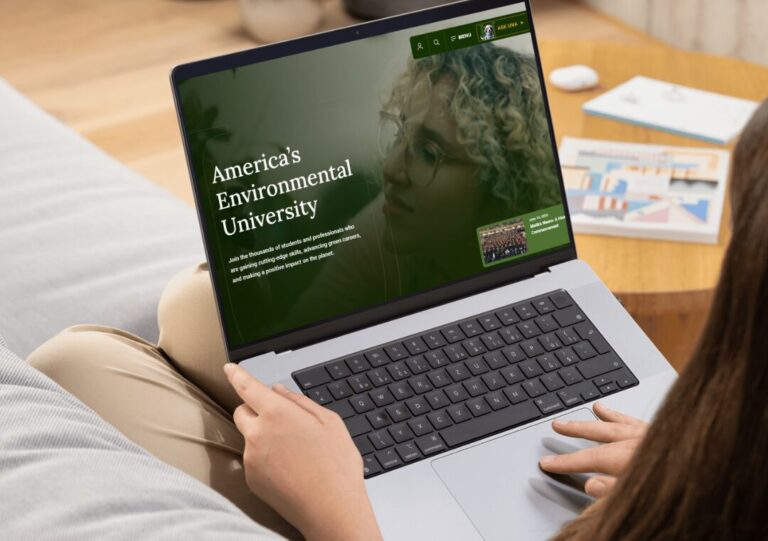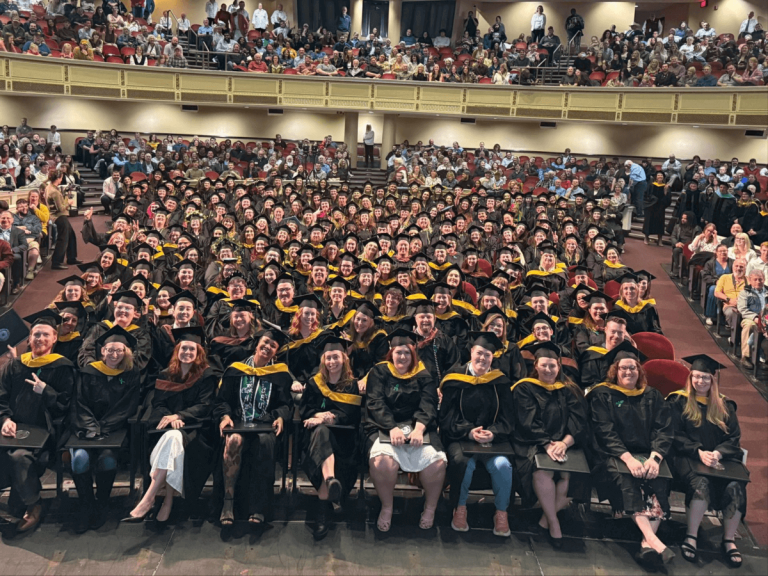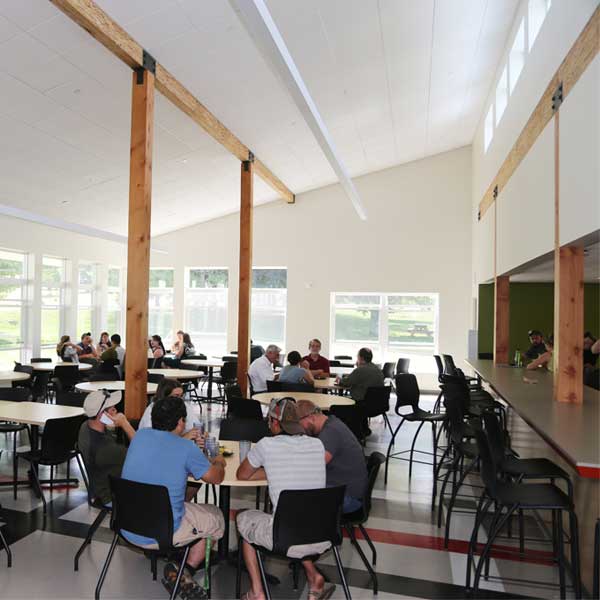
College officials were delighted to receive word from a foundation that supports locally sourced foods that it was offering a generous donation. The foundation, which wishes to remain anonymous, offered the donation to support the recently completed renovation and expansion of Wyman Commons, the largest dining facility on the Unity College campus.
“This generous donation was offered to support locally sourced produce,” noted Unity College President Stephen Mulkey. “Unity College is better positioned than most institutions to significantly reduce its dependence on packaged and processed vendor foods with produce grown on campus or from local sources. We are most grateful for this support and its recognition that the answers to sustainability challenges are closer to home than many may believe.”

Dr. Melik Peter Khoury, Executive Vice President and Liaison to the Board, says that the recently completed expansion and upgrade of Wyman Commons was the next logical step toward reduction of vendor dependency.
“Wyman Commons is designed to accommodate modern equipment that will enable Dining Services to store, process, and incorporate more locally-sourced produce,” Khoury explained. “Items include vegetable washers, potato peelers, juicers, grill, food processors, and a compost collector.”
In the year preceding the cafeteria upgrade and expansion, Khoury conducted listening tours across campus and beyond. He learned that an upgrade of the
cafeteria was high on the wish lists of students for ways to improve the quality of campus life. The result was to finalize plans and fast track a cafeteria renovation and expansion that will not only improve service, but provide the entire campus community with new dining, meeting, and recreating opportunities.
Given that the College is seeing consistent enrollment growth, and is completed a new residence hall in time for the 2014-15 Academic Year, Khoury successfully advanced the idea that 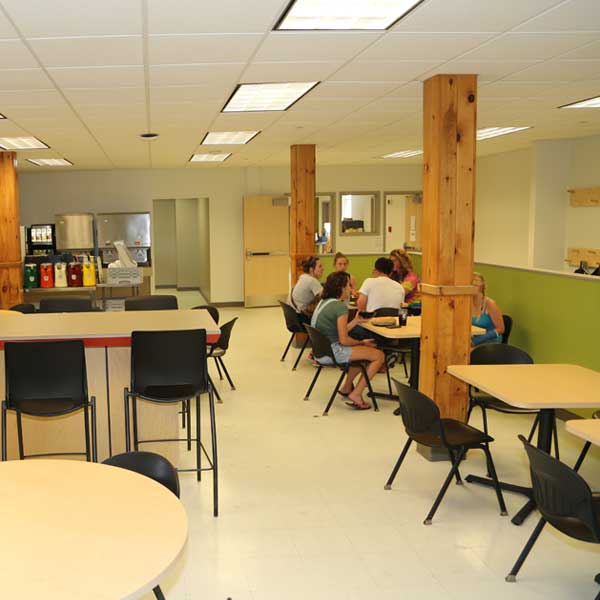 completing a significant cafeteria upgrade could not wait.
completing a significant cafeteria upgrade could not wait.
Within a short time of commencement in May, work on the renovation and expansion began. The addition to the existing cafeteria extends from Founders Hall.
“All of the new construction including the vestibule, sprinkler pump room, two new bathrooms, and the new dining area total 2,900 square feet,” said Dan LaForge, Director of Facilities and Public Safety. “The existing dining area was 1,625 square feet including the solarium area. The serving area – where students actually get their food – remains unchanged and has 1,054 square feet.”
Among the changes to the previous cafeteria is consolidating office space into the former atrium, then devoting the square footage of the previous office space to the cafeteria. A comprehensive kitchen upgrade will be complete during Christmas break in December, LaForge says.
Design characteristics include inspiring, eye catching features like floor to ceiling windows, new furniture, art, and serving options like a Mongolian grill – the only one of its kind at a college in Maine.
“The cafeteria was not large enough and did not have an ambiance to provide that all important home away from home look and feel,” Khoury said. “Our new cafeteria is a comfortable, spacious facility that provides this community with the kind of dining space it both requires and deserves.”
Students expressed their enthusiastic approval of the finished project when they arrived on campus for the 2014-2015 academic year.
“I was absolutely stunned to see this spacious and comfortable new cafeteria space,” said Michael Rossi ’17, an Environmental Policy major from Methuen, Massachusetts. “I think this gives the 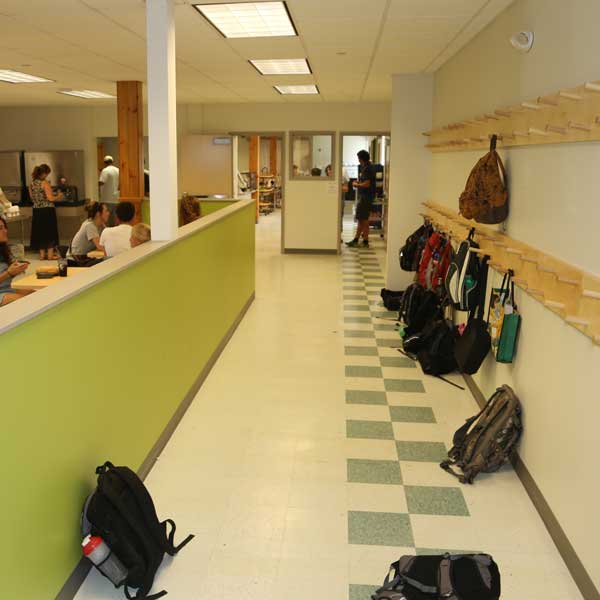 cafeteria a 21st century feel. The sustainability aspects built into this cafeteria are also impressive. Dining services is able to increase the volume of locally sourced foods served. That is another important aspect of this renovation.”
cafeteria a 21st century feel. The sustainability aspects built into this cafeteria are also impressive. Dining services is able to increase the volume of locally sourced foods served. That is another important aspect of this renovation.”
The new design allows the kitchen to be closed during off hours while allowing the seating areas to remain open for student access. During off hours student clubs have a new place to meet, students have study spaces in a variety of configurations, among other uses that improve the quality of life for all members of the College community.
